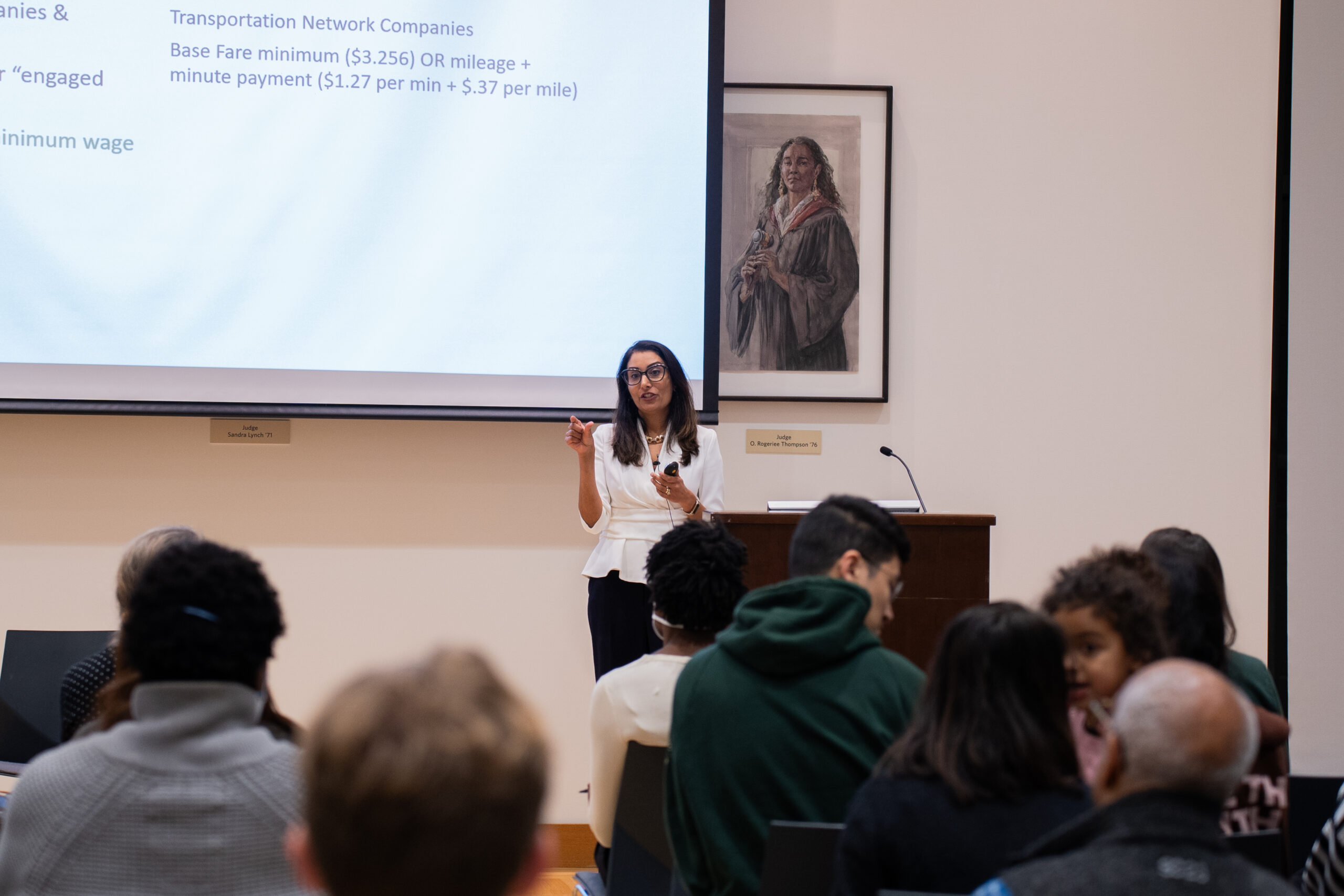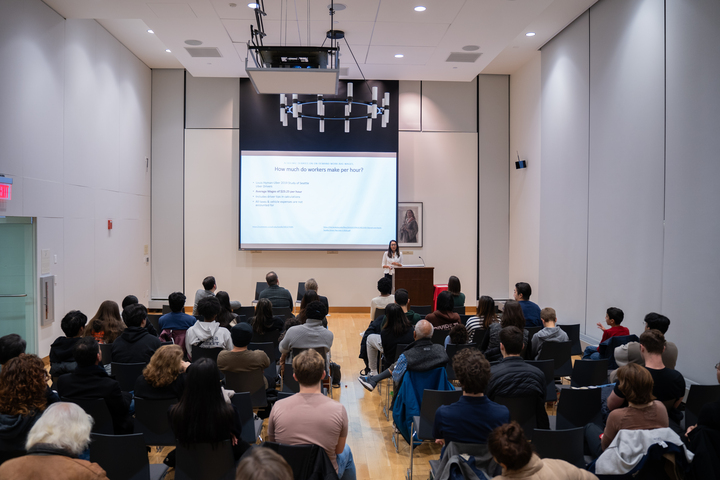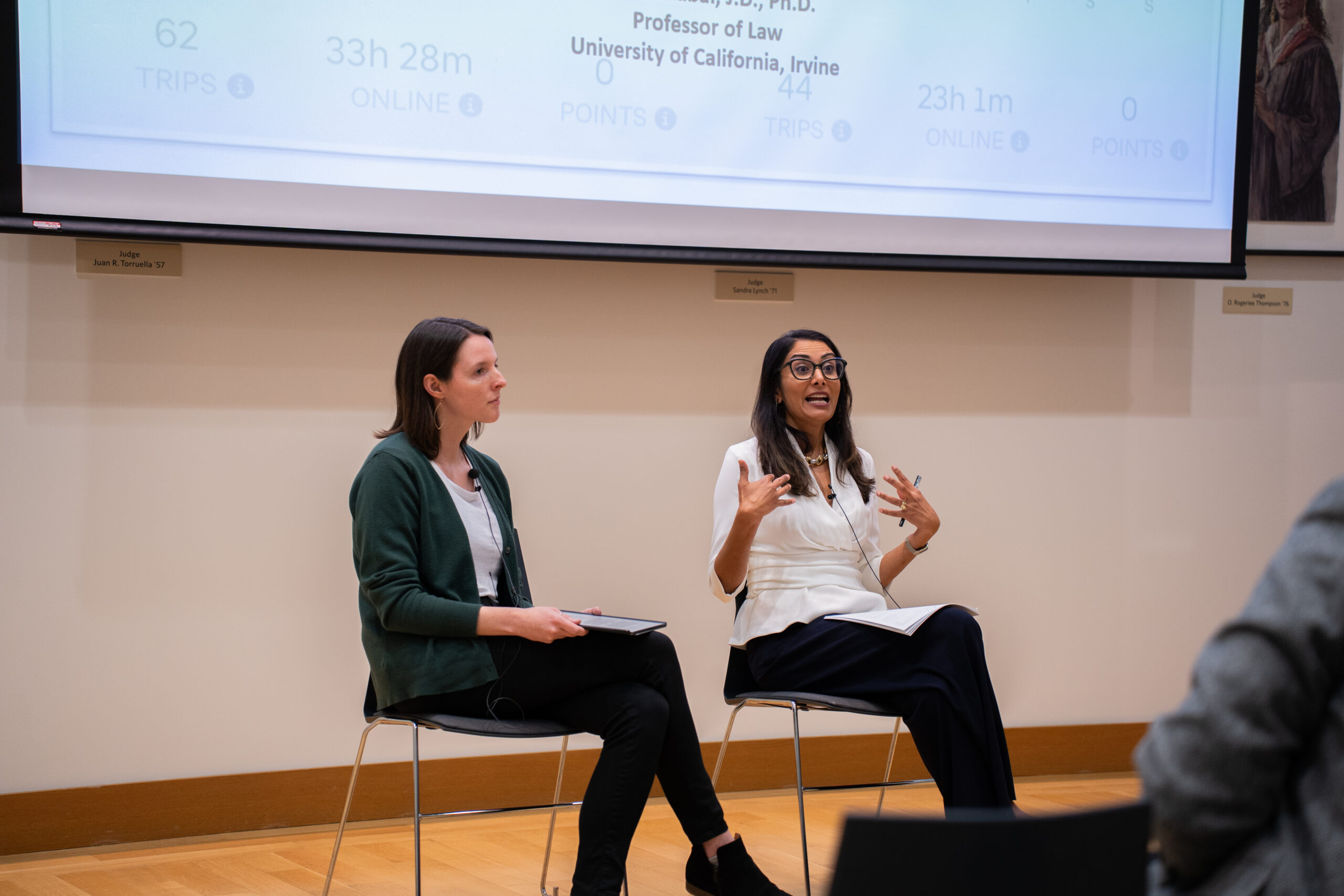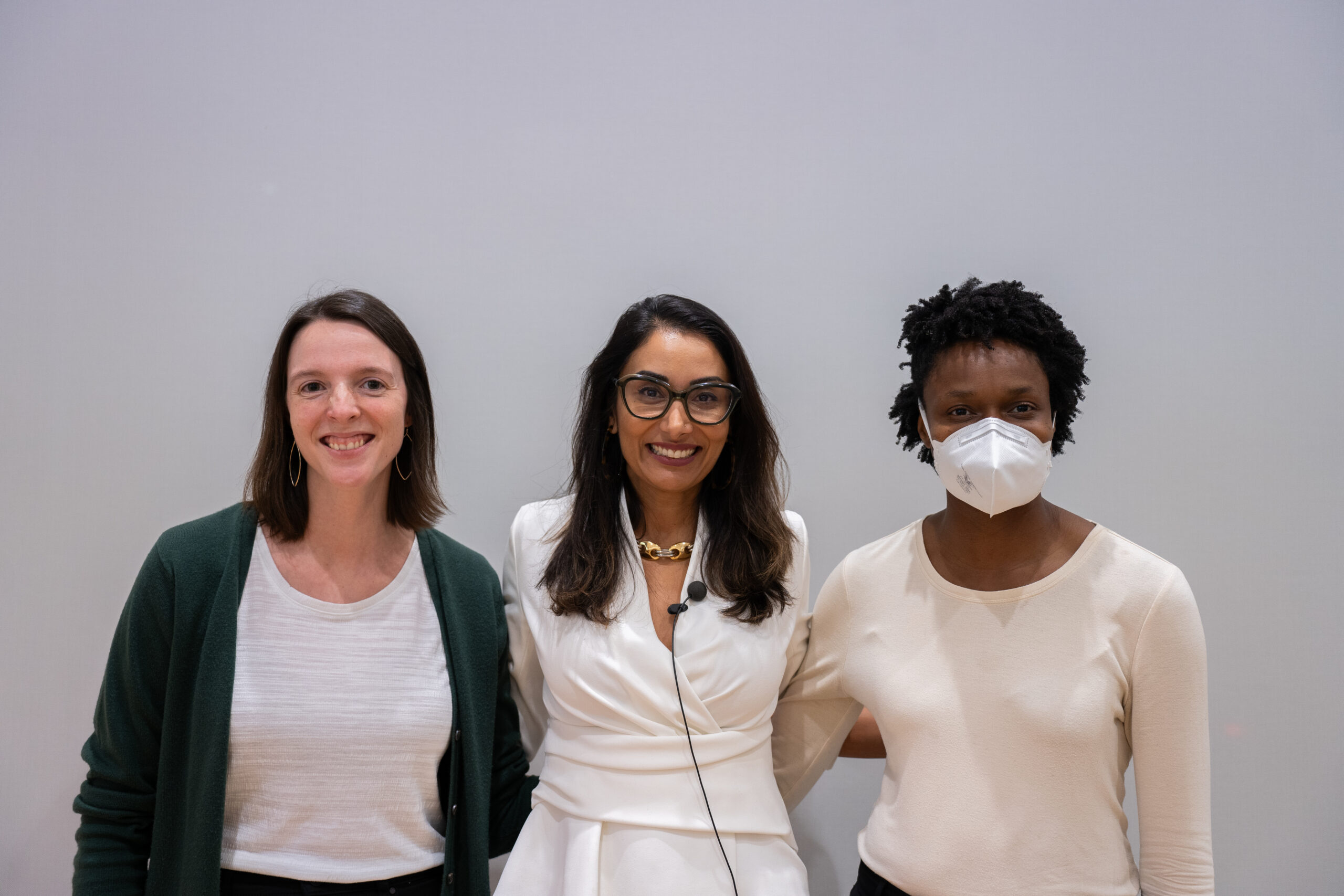Behind the Myth of Gig Work Benefits
Uber drivers and other contingent workers can’t predict how much they will make on the job – and deserve better, argues Veena Dubal, law professor at University of California, Irvine.
The promises of the gig economy run several ways. Consumers get easy access to a ride or a meal delivery. The companies that run the services profit from the data-driven mechanisms they have created to connect workers to customers. And the workers win the autonomy to decide when and how often to drive an Uber or Lyft, or to deliver more Instacart and DoorDash orders. Some economists’ research even shows that Uber drivers’ were happy with their schedule flexibility and pay.

A closer examination of those drivers’ working conditions, however, shows many of the worker gains to be a mirage, said Veena Dubal, Professor of Law, Irvine School of Law, University of California. Instead of scheduling flexibility, workers in the so-called “gig economy” – who do not enjoy labor protections like minimum wages and overtime – face uncertain schedules, impossible-to-predict wages, and vehicle maintenance expenses that weigh down their earnings, and in many cases cause them to work more than they would if they had full-time, minimum wage jobs.
In her December 4, 2023, presentation, “Myth and Measurement of Digitized Wages in Platform Work,” organized by the Faculty of Computing and Data Sciences, Dubal argued that the wage-setting practices of companies like Uber can be described as “algorithmic wage discrimination” and that they are particularly harmful to the working poor. She urged policymakers to assure minimum pay protections for all time laboring and set guidelines for labor and compensation practices.

While states like California and Washington have passed labor laws specifically targeting gig workers, Dubal said these efforts ignore the core problem: unpredictable, variable pay created through algorithmic wage discrimination practices. Yet, there’s a perception that workers gain from these arrangements, promoted by industry-sponsored research. Companies themselves won’t open up their data systems to explain how they set pay rates – in part because they are constantly running experiments to see what worker incentives and payments yield the best results for them, she said.

Dubal based her remarks on her nine years of ethnographic studies, including thousands of hours of conversations with workers, some of which she summed up in a November 2023 article in Columbia Law Review.
Dubal called on both policymakers and researchers to “look more clearly not just at the precise amount of wages that drivers or workers in these sectors make, but at the real present and long-term impacts of the unpredictability at how this impacts accidents, how this impacts traffic, and how it impacts how wages are related to worker health and safety, how it impacts long-term economic mobility, and creates, re-entrenches and exacerbates racial and gender disparities in the labor market.”

Dubal’s talk, which she gave at Barrister’s Hall at BU School of Law, was part of the Social Justice for Data Science Lecture Series, developed by Ngozi Okidegbe, Moorman-Simon Interdisciplinary Career Development Assistant Professor of Computing & Data Sciences and Associate Professor of Law, and Allison McDonald, Assistant Professor of Computing & Data Sciences. The series looks at the ways data science operates to advance, transform, and hinder justice-oriented movements by underrepresented and politically marginalized communities in different areas of life, and draw lessons that can help reorient the field of data science toward justice.
View the lecture and read more about the Social Justice for Data Science 2023 speaker series.
By Michael S. Goldberg, CDS Contributor